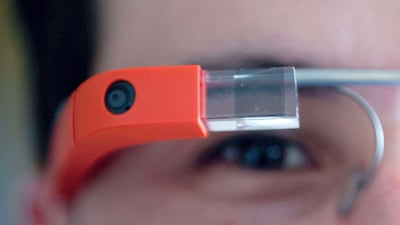The success of any wearable technology lies in its immediacy and usefulness, and specialised apps for Google Glass are trying hard to bring information to our eye level.
The Spanish online travel portal Destinia.com is trialling an app that will work on GPS and alert the wearer of any hotel rooms nearby.
For the business traveller – and Google Glass wearer – it means they can step off the plane without a hotel booking and can instantly find, book and filter places to stay by price or category.
Users of the gadget must select the app called Hotel Near Me by tapping on the side of the Google Glass and say “go Glass”. Google Glass, which picks up sound from the vibrations in the ear bone, activates the app, which then searches the available options nearby. The user can then tap on the side of the Glass or even nod their head to activate, select and browse the results.
The Google Glass app will be free but Destinia will earn money from hotel bookings. But surely it will also raise its fees that it charges the hotels it is helping to promote? Not immediately, says Ian Webber, the development director at Madrid-based Destinia.com.
Its success, in fact the success of Google Glass itself, remains to seen. Google Glass will launch in the United States next year and only a few thousand of the prototypes are available to app developers such as the Destinia team.
As someone who normally wears glasses, I found the tiny screen distracting and difficult to read. No matter how close it was to my eye, it felt like an ant was crawling across the Google Glass.
Moreover, the gadget itself is still under trial and needs development before it can seamlessly merge with our daily life in the same way a smartphone does. The battery life is short and can be used up in half an hour. Plus the Glass is tuned to the head of the wearer, so if someone else dons it, the screen does not go live immediately. It takes at least a few minutes of adjusting.
However, that has not deterred app developers.
The Glass has already encouraged several new applications – from Glassnost, which shares and rates Google Glass photos and videos, to Glass Eats, which searches for restaurants nearby.
Q&A: Travel takes a new direction
Ian Webber, the development director at Madrid-based Destinia.com, talks about the future of travel apps.
Is the Destinia.com app for Google Glass going to disrupt the travel industry?
Not right now since it is not going to be launched right now. But it can be important in the future. It is going to disrupt the communication industry in general. There are some great ideas out there. We are working on an app on augmented reality. When you visit the Colosseum in Rome, you can, for instance, see how it used to be with this app. We are working on another app that would help you make an itinerary as you move around and share photos and videos as you go.
So, as this app suggests, is the travel industry adapting to new technology?
It is coming up with new ideas. When we started a hotel directory in 1995 [which eventually gave rise to Destinia.com], we thought why not have online travel reservations? At that time, you phoned in, and the call went to the booking people. The process is much more sophisticated now.
How many hotels does Destinia.com feature?
Destinia.com, through the Amadeus travel technology provider, offers access to 250,000 hotels around the world and 450 flights in 25 languages. It has 100 employees.
Are you developing anything for the mobile?
We should have an app out in a month. It took us a week to go from the idea to the actual app.
Top five apps for Google Glass
1 Strava, a fitness app
2 Word Lens, translates signs and maps and more real time
3 Kitchme, teaches recipes
4 Preview for Glass, plays movie previews
5 Glassentation, puts flashcards into the glass
– Source: heavy.com
ssahoo@thenational.ae
Follow us on Twitter @Ind_Insights

